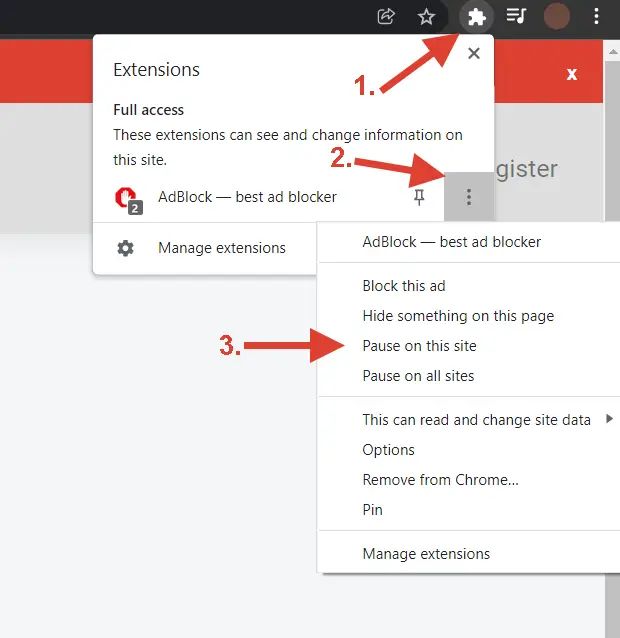Are you an independent artist, a boutique brand owner, or a creative entrepreneur looking for the right platform to showcase your products? You’ve likely come across Storenvy, a unique e-commerce solution that blends a social marketplace with customizable online stores. But what is it, and is it the right choice for your business?
This comprehensive guide breaks down everything you need to know about selling on Storenvy. We’ll explore its features, pricing, and how it stacks up against competitors, giving you the clarity to decide if it’s the perfect home for your online brand.
Table of Contents
- What is Storenvy and How Does it Work?
- Storenvy Marketplace vs. Custom Store: What’s the Difference?
- Getting Started: How to Sell on Storenvy
- Storenvy pricing and Fees: How Much Does it Cost?
- Storenvy vs. Shopify: Which Platform is Right for You?
- Key Features and Tools for a Storenvy Seller
- Is Storenvy Legit? Addressing Safety and Trust Concerns
- Frequently Asked Questions
What is Storenvy and How Does it Work?
So, what is Storenvy? At its core, Storenvy is an e-commerce platform designed to empower independent brands and creators. It’s not just a single service but a hybrid model that offers two distinct selling experiences. Many people searching for terms like store envy, storeenvy, storeny, storenv, or storevny are all looking for this platform, officially found at storenvy.com.
The fundamental question of how does storenvy work is best answered by understanding its two main components:
- A Custom Online Store: You get a fully customizable, standalone
storenvy storethat acts as your brand’s home on the web. You can personalize its look and feel, list your products, and manage orders from a central dashboard. - A Social Marketplace: When you open a store, your products can also be featured in the Storenvy Marketplace. This is a central shopping hub where millions of users discover unique products from thousands of sellers.
This dual approach allows sellers to build their own brand identity while simultaneously tapping into a built-in community of eager shoppers. This platform, often referred to simply as storenvy com, has carved a niche for itself by supporting emerging artists and indie businesses.
Storenvy Marketplace vs. Custom Store: What’s the Difference?
Understanding the Storenvy Marketplace vs. Custom Store model is key to succeeding on the platform. While they are connected, they serve different purposes and have different fee structures.
The Storenvy Marketplace
Think of the Marketplace as a massive, curated online mall. When a customer buys one of your products after discovering it through the Marketplace—via browsing, searching, or the storenvy feed—that sale is considered a Marketplace sale.
- Pros: Access to a large, built-in audience actively looking for unique products. This can significantly reduce your marketing burden.
- Cons: Storenvy charges a commission fee (currently 15%) on the total sale price (including shipping) for these sales.
This answers the common question, what is storenvy marketplace: it’s the platform’s discovery engine and community shopping hub.
The Custom Store
Your custom storenvy shop is your personal storenvy website. It’s your branded space where you have control over the design and customer experience. When a customer buys directly from your store’s URL (e.g., yourbrand.storenvy.com), it’s considered a Custom Store sale.
- Pros: You keep more of the profit. There are no commission fees on sales that you drive directly to your store. This is ideal for sales from your social media, email list, or direct marketing efforts.
- Cons: You are solely responsible for driving traffic to your store. Without marketing, it can be hard for customers to find you.
Getting Started: How to Sell on Storenvy
Ready to launch your shop? The process to sell on Storenvy is straightforward.
- Create Your Account: Head to the official website and sign up. You’ll choose a store name, which will become your URL.
- Log In and Set Up: Use your Storenvy login to access your seller dashboard. This is your command center for everything from adding products to tracking sales.
- Customize Your Storefront: Make your shop your own. Add a logo, a banner image, and choose a theme that reflects your brand. Well-designed Storenvy storefronts stand out and build customer trust.
- Add Your Products: Create listings for your items. Write compelling descriptions, use high-quality photos, and set your prices. You can list anything from custom art to apparel like Storenvy shoes or Storenvy mens shoes.
- Configure Payments & Shipping: Connect a payment processor like Stripe or PayPal to receive payments. Set up your shipping rates using the built-in tools or a dedicated Storenvy shipping application if you have more complex needs.
Storenvy Pricing and Fees: How Much Does it Cost?
One of the most attractive aspects of the platform is its affordability. Many potential sellers ask, is storenvy free? The answer is yes, you can get started for free. However, it’s important to understand the complete fee structure.
Here’s a breakdown of the Storenvy cost:
- Store Plans: Storenvy offers several plans, including a free “Hobbyist” plan that allows you to list up to 20 products in your custom store. Paid plans (Artisan, Growth, Pro) offer more listings, advanced features, and lower commission rates.
- Marketplace Commission: As mentioned, Storenvy takes a 15% commission on sales that originate from the Marketplace on the free plan. This is the primary way they answer the question, how much does storenvy take.
- Payment Processor Fees: Standard fees from Stripe or PayPal (typically around 2.9% + $0.30 per transaction) apply to all sales, regardless of where they originate.
So, does storenvy charge fees? Yes, but they are structured to be accessible. You don’t pay a monthly fee on the basic plan, and commissions only apply when the platform’s marketplace successfully brings you a customer. This makes the Storenvy pricing model very beginner-friendly.
Storenvy vs. Shopify: Which Platform is Right for You?
The Storenvy vs. Shopify debate is common for sellers choosing an e-commerce platform. While both help you sell online, they are built for different types of users.
Choose Storenvy if:
- You are a new seller, artist, or small brand with a limited budget.
- You want access to a built-in marketplace audience to help with initial discovery.
- You prefer a simple, easy-to-use interface without overwhelming features.
Choose Shopify if:
- You are an established business or plan to scale aggressively.
- You need advanced features, extensive app integrations, and deep customization.
- You have a dedicated marketing budget and strategy to drive your own traffic.
While a native Storenvy Shopify integration doesn’t exist, some sellers use both platforms to leverage the strengths of each—using Storenvy for its marketplace reach and Shopify for its powerful backend.
Key Features and Tools for a Storenvy Seller
Managing your Storenvy business is made easier with a set of dedicated tools.
- Seller Dashboard: A central hub to view your sales, traffic analytics, and manage orders.
- Social Commerce Features: The platform incorporates social elements like “watching” a store or “envying” a product, which can boost visibility within the community.
- Promotional Tools: Easily create and manage discount codes to run sales and promotions for your customers.
- The Storenvy App: Manage your store on the go, receive order notifications, and communicate with customers from your mobile device.
- Storenvy Integrations: The platform supports connections with other services. For example, many sellers utilize Storenvy print on demand services by manually routing orders or using third-party tools to automate the process.
Is Storenvy Legit? Addressing Safety and Trust Concerns
A major concern for both buyers and sellers is platform legitimacy. So, is Storenvy legit? Yes, Storenvy is a legitimate and established e-commerce platform that has been operating since 2009. It hosts thousands of independent online stores.
However, since it is a marketplace, the experience can vary depending on the individual Storenvy seller. This leads to many specific questions:
- Is Storenvy safe to order from? Generally, yes. Payments are processed through secure gateways like Stripe and PayPal, which offer buyer protection. It is always wise to check Storenvy seller reviews before making a purchase.
- Can I trust Storenvy? The platform itself is trustworthy. The key is to vet the individual seller. Look at their ratings, how long they’ve been on the platform, and their social media presence.
- What do user reviews say? Checking Storenvy Trustpilot or Storenvy Reddit threads can offer insight into others’ experiences. You’ll find a mix of positive and negative feedback, which is typical for any large marketplace. Some report excellent finds from unique artists, while others report issues with shipping or communication from a specific store.
- Are the products real? Users frequently ask questions like is Storenvy real or
is Storenvy com legit, and the answer is that the platform is real and the vast majority of sellers are genuine.
Ultimately, questions like is Storenvy safe, is Storenvy good, or is Storenvy reliable depend heavily on the practices of the individual shop owner. The platform provides the tools, but the service and product quality are the seller’s responsibility. This is why you might see specific queries like is freehippiespirit.com legit; users are trying to verify individual storefronts, not just the platform. The best answer to is storeenvy com legit or is storenvy com a legitimate site is yes, but practice the same caution you would on any other marketplace platform.
Frequently Asked Questions
Who owns the storenvy?
Storenvy is owned by OpenSky, a company that provides a portfolio of e-commerce marketplaces and tools for small and medium-sized businesses.
Where is storenvy located?
The company itself is US-based. However, the platform is global, hosting sellers and attracting buyers from all over the world. This is why when people ask where is storenvy based, the corporate answer is the US, but the community is international.
Is the storenvy still open?
Yes, Storenvy is fully operational and continues to be an active platform for both buyers and sellers.
How long does storenvy take to ship?
Shipping time is determined entirely by the individual seller. Each shop has its own processing times and shipping policies. Storenvy as a platform does not handle or control the shipping process. Always check the seller’s policy page before ordering.
Is storenvy a good place to sell?
It can be an excellent place to sell, especially for artists, makers, and indie brands who can benefit from the built-in marketplace audience and low startup costs. It may be less suitable for large businesses that require advanced inventory and marketing automation tools.
Is storenvy legit reddit?
Discussions on Reddit about Storenvy’s legitimacy generally conclude that the platform itself is legitimate, but experiences with individual sellers can vary widely. It serves as a good resource for user-generated reviews and due diligence.


